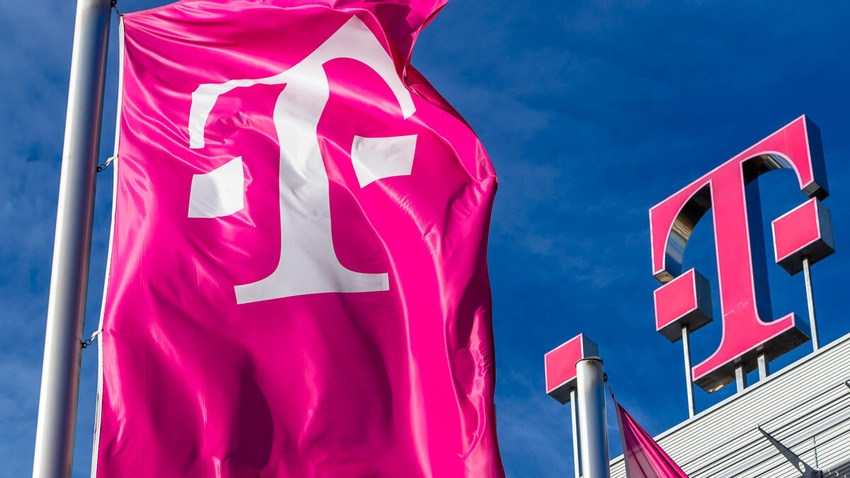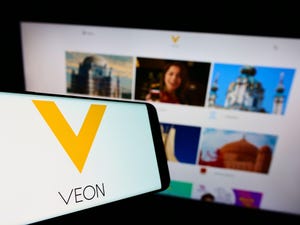Eurobites: Deutsche Telekom, Nokia get serious in 'O-RAN Town'
Also in today's EMEA regional roundup: Ofcom gets tough on mid-contract price hikes; BT's McCall on the big 3G switch-off; Spanish seniors enter the metaverse.

Nokia and Deutsche Telekom are to begin the commercial deployment of a multivendor open RAN network in Germany in the so-called "O-RAN Town" of Neubrandenburg after extensive trials there. The Finnish vendor, rather wobbling on the ropes after being recently dumped by AT&T, says the deal, which also involves Fujitsu, "marks a significant return for Nokia into Deutsche Telekom's network. So is this limited deployment a warm-up for a countrywide open RAN rollout that will see Nokia largely replace China's Huawei in the operator's radio access network? Nokia CEO Pekka Lundmark isn't giving a lot away: "There is a strong political discussion going on in Germany as to how the vendor strategy should look in the future. This is for us very encouraging. The customer has not wanted us to disclose the exact size of the deal but what I can confirm is that this is much more than just a trial. This is a real commercial deployment." (See Nokia CEO speaks out on AT&T's 'one vendor' move to Ericsson.)
Further north, in Finland, Nokia has landed a 5G standalone core software-as-a-service (SaaS) contract with Telia. The deal, says Nokia, is part of an EU-funded innovation program called Sirius that seeks to create "5G SA corridors" along highways and sea routes. Sirius will use Nokia's Network as Code platform alongside a developer portal that enables the creation of software applications for new enterprise, industrial and consumer use cases.
Kyivstar, VEON's Ukrainian subsidiary, has suffered a widespread cyberattack this morning (Wednesday), leaving it without voice or data services. In a statement, Kyivstar said that, to the best of its knowledge, subscribers' personal data has not been compromised. The operator did not say who it thought was behind the attack (though we all can have a pretty good stab at it).
UK communications regulator Ofcom is proposing to ban inflation-linked, mid-contract price rises on mobile and broadband tariffs, its preliminary investigations leading it to believe that such increases "cause substantial amounts of consumer harm by complicating the process of shopping for a deal, limiting consumer engagement, and making competition less effective as a result." It has become standard practice for operators to yank up the price of a tariff by the rate of inflation plus a random-looking 3.9% midway through the contract – a practice that has not gone down well during the UK's ongoing cost-of-living crisis. Between January and October 2023, Ofcom received more than 800 complaints related to price rises, which is almost double the volume of complaints received during the same period in 2021.
Ofcom has also been taking a broader look at trends in telecom pricing, finding, among other things, that take-up of so-called "social [discounted] tariffs" grew substantially over the past year, from 220,000 households to 380,000. However, more than half of all eligible households were still unaware of social tariffs, and take-up remains low, at 8% (of eligible households). Ofcom will also have irritated the likes of BT and Virgin Media O2 by pointing out that prices offered by independent full-fiber network providers, or altnets, are frequently lower than those provided by the better-known companies.
BT's chief networks officer, Greg McCall, has tapped out a blog to both confirm that the operator will begin switching off 3G in January and reiterate the justifications for the retirement of this ageing technology. "While our 3G network has delivered on what it was built to do, it is now 20 years old and has been made redundant by newer technologies. With our 2G network remaining for voice calls and texts, there is nothing else 3G does that is not improved by using 4G or 5G," writes McCall. He points out that vulnerable customers who currently use a 3G-only phone or data plan will be offered a free 4G-ready phone, while those who want to choose their own phone will be offered a discount on a pay-monthly plan.
Telefónica and Meta have joined forces to help the elderly get better access to "mixed reality" technology in Spain, with Telefónica providing the connectivity and Meta the headsets. The content is reached via the Movistar Immersive Experience application, which is, says the operator, "a space in the metaverse where you can share, discover, access new audiovisual content, play games or learn about Telefónica products and services."
Read more about:
EuropeAbout the Author(s)
You May Also Like












